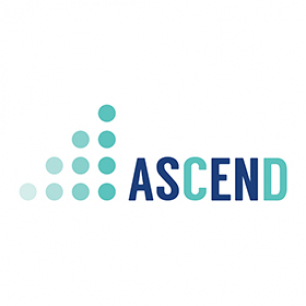Gregory Dore, Head Viral Hepatitis Clinical Research Program, Kirby Institute UNSW
Andrew Lloyd, Head Viral Immunology Systems Program, Kirby Institute UNSW
Jason Grebely, Senior Research Fellow, Viral Hepatitis Clinical Research Program, Kirby Institute, UNSW
Matthew Hickman, Head, Population Health Sciences, University of Bristol
Michael Houghton, Director, Li Ka Shing Applied Virology Institute
Andrea Cox, Professor of Medicine and Oncology, Johns Hopkins School of Medicine
Fabio Luciani, NHMRC Career Development Fellow, Viral Immunology Systems Program, Kirby Institute, UNSW
Rowena Bull, NHMRC Career Development Fellow, Viral Immunology Systems Program, Kirby Institute, UNSW
Adrian Dunlop, Clinical Director, Hunter New England Alcohol and Drug Treatment Programme
The Investigators are undertaking a five year program grant seeking to enhance collaboration and bring together disciplines of viral hepatitis and drug dependence for mutual benefit.
The ASCEND program aims to:
- Characterise morbidity and mortality among people with problematic drug use;
- Enhance the effectiveness of drug dependence management;
- Evaluate strategies to eliminate hepatitis C virus (HCV) infection among people who inject drugs; and
- Monitor trends in drug dependence and HCV burden in Australia.
ASCEND activities include:
- Data linkage studies for opioid and methamphetamine dependence
- Data linkage studies for HCV
- Buprenorphine depot clinical trials
- Integration of clinical practice and epidemiological research with Centre for Clinical Research Excellence in New and Emerging Drugs
- Improved testing and treatment for community and prison-based people who inject drugs
- Immunological studies for HCV reinfection
- Phase II evaluation of candidate HCV vaccines
- National registry of HCV direct acting antiviral outcomes and National Survey of HCV viremic prevalence in people who inject drugs
- Geospatial analysis of administrative data
- Mathematical modelling to support HCV elimination targeting and evaluation
The inaugural ASCEND symposium focusing on the theme Public Health Interventions and Modelling was held in May 2019. Details of annual symposia will be posted as they become available.
The intended outcomes of the ASCEND program include:
- Enhanced understanding of the contribution of both HCV and drug-related harm to morbidity and mortality among people with problematic drug use
- Strategies to enable broader access and improved outcomes from highly curative HCV therapies for people who inject drugs in both the community and prison
- Strategies to reduce HCV reinfection among people who inject drugs, including via HCV immunisation
- Development of new modalities and delivery methods for drug dependence









